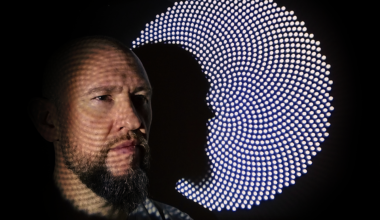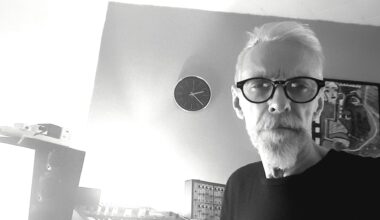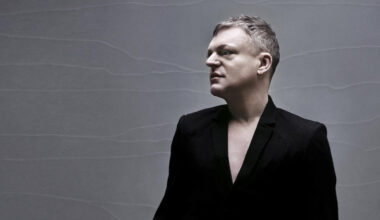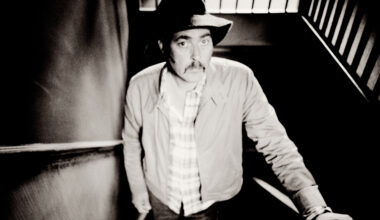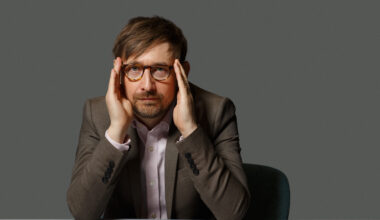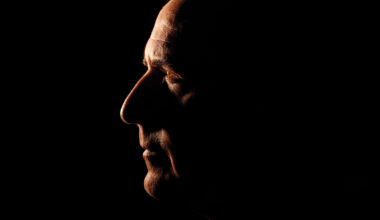Sinatra, The Boys’ Brigade and bird shit – just a few of the secret ingredients that have shaped musical mastermind Vince Clarke
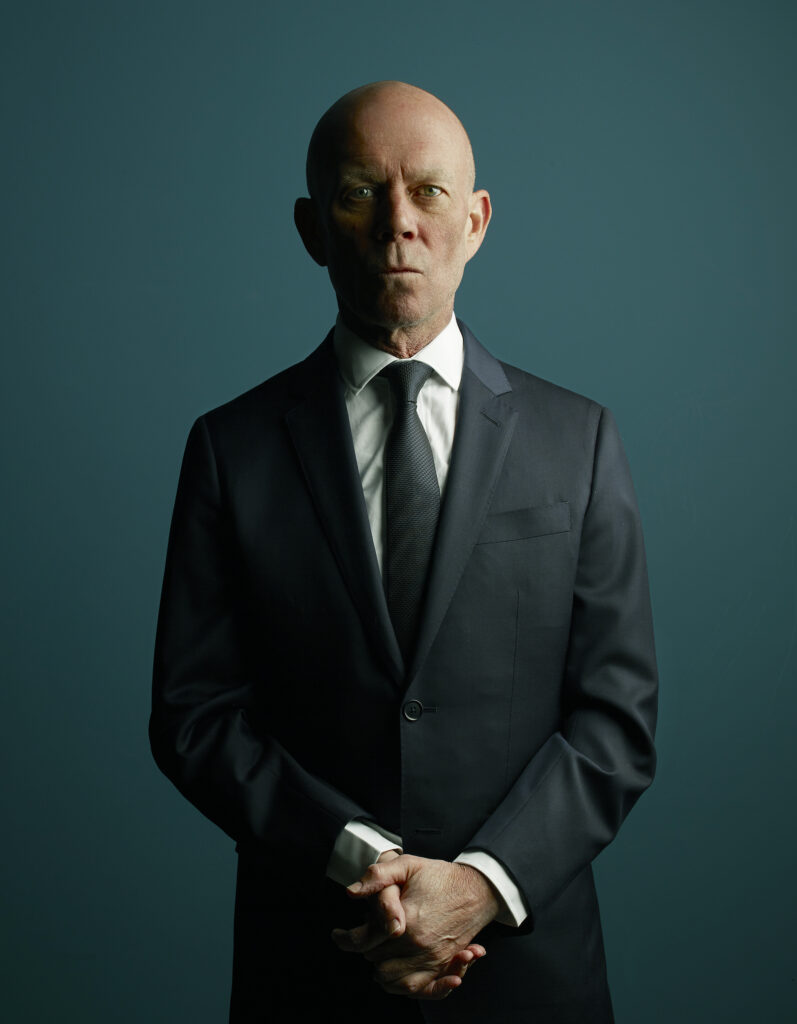
SLEEPLESS NIGHTS
“My bedroom had astronauts and spaceships on the wallpaper and there was a big, old wooden wardrobe at the end of the room. When I was in bed I could see this wardrobe, and it was one of those ones that was kind of marbled wood finish, so it had all of these shapes in it. At night it used to frighten me to death, because I could see these shapes moving. I had quite a few sleepless nights as a kid!”
FRANK SINATRA
“We didn’t have a radiogram until quite late, but my dad had a Ferguson reel-to-reel tape recorder. He only had one record, ‘Sinatra At The Sands’, which was basically Frank Sinatra singing in between telling jokes. We used to listen to the charts on a Sunday night, and we’d use my father’s reel-to-reel to tape the Top 20, but we only had the one tape… so gradually ‘Sinatra At The Sands’ disappeared, because we were erasing it with the Top 20! I don’t think he minded or really cared. I still listen to Frank Sinatra, I’ve got quite a few of his records actually. When Capitol did that whole reissue, a friend of mine was involved in organising that so he sent me a load of remastered CDs, ‘The Capitol Years’ I think it was called. So I started listening to bits of Frank Sinatra again. It brings back memories of my mum and dad I guess.”
CRAPPY JOBS
“I left school when I was 15 and got a job at the local yoghurt factory. I got paid £22.50 a week and I was there for six months. I was just so happy to not be at school. I was always working to earn money to buy equipment because I thought, if you’ve got an expensive guitar you’re going to be a better player! Turns out, that’s not the case.
“Then Andrew Fletcher’s dad got me a job working at Southend Airport. I had two jobs there. I had a van, which was fantastic, and a white boiler suit uniform. When the small planes came in from Jersey or Guernsey – the propeller jobs, not jets or anything – I would get the van and drive up to the airplane once it had stopped. All of the punters would get out, I’d jump in and run to the end of the plane where the toilets were, which were basically buckets, and I would, very carefully because they were always full, get these buckets down the aisle, out of the plane and into a cesspit in another part of the airport. Once I’d done that, while they were setting up the plane for the next flight, I’d get my ladder out and put it up against the pilot’s window, where he’d be doing his controls and maps and checks, and it was my job to scrape the bird shit off that window.”
TWO KIND SOULS
“I used to belong to the Boys’ Brigade, it’s like the Scouts except a bit more religious. I didn’t go there because I wanted to be religious, but I did love being in the Boys’ Brigade, it was a cure for school really. The guy who ran it was the reverend for the local Methodist church and he was such a kind man. I was only young, I didn’t even understand what that meant, but he exuded kindness, and patience, which he had to have really as it was basically lots of eight to 15-year-old boys running around like nutters. He was really supportive of all of us at a time when your parents don’t necessarily have that much patience with you, for good reason. I’ll never forget him.
“When it came to being supported in music, the studio that Depeche Mode recorded at in the beginning was called Blackwing Studios, and the guy that owned it, ran it, engineered and produced was a guy called Eric Radcliffe. Going to the studio for the first time I was full of questions. How do you do this? How does this work? He was an amazing teacher. He didn’t have to tell me, because that wasn’t his job, but he did. I learnt so much from this guy. He really did change my life.”
MOVING MOMENTS IN MUSIC
“Things changed for me when I saw the movie ‘The Graduate’. It was the first time I heard the music of Paul Simon. It was also the first music I heard where I thought, ‘Do you know what, I can do that!. It wasn’t like listening to Slade, or someone on ‘Top Of The Pops’. It was someone playing songs on an acoustic guitar and it sounded really, really good. So the next day I went out and bought all the Simon & Garfunkel books that were out there and I learnt all of the songs. That’s when I thought to myself, ‘Well, I might be able to do something like this’.
“My most emotional experience with live music was when I first saw The Cure play at Reading Festival in 1979. I didn’t have much money then, but a friend called Sue had The Cure’s first album ‘Three Imaginary Boys’. I borrowed it constantly, to the point where she got very annoyed. I just fell in love with that record and needed to see them play live. I think Genesis and The Police were headlining, these real mega bands, but we just went to see The Cure. There’s a song on that record called ‘10:15 Saturday Night’ and it’s a real boy’s song. You listen to it and think, ‘Nobody understands me’, and sometimes I like to do that, just to myself!”
‘World Beyond’, Erasure’s neo-classical reworking of their ‘World Be Gone’ album in collaboration with Brussel’s Echo Collective, is released by Mute
